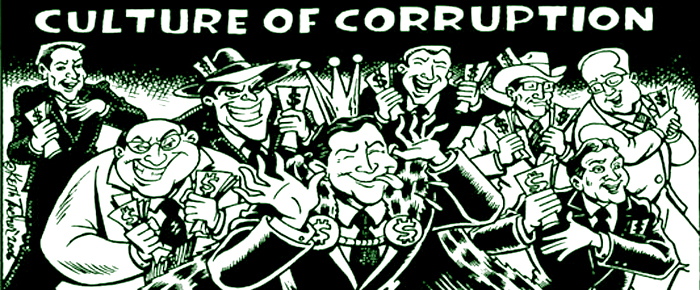
By Haddon Libby
Corporate Cannibals consume their customers. Wells Fargo is the poster child for this type of behavior in banking.
Let’s review where Wells Fargo has recently violated customer trust…and the law:
Last week, Wells Fargo paid $190 million in fines and restitution for fraudulently opening 2,000,000 deposit and credit cards accounts for clients without the approval or knowledge of those clients. Once the accounts were opened, the customers had to pay monthly fees and overdraft fines. Employees forged client signatures as part of the scam. Nearly 1% of Wells Fargo employees (5,300) were fired over five years for these practices yet no one in senior management was fired. Carrie Tolstedt, SVP of Community Banking, retired after a $9 million payment in 2015. CEO John Stumpf called Tolstedt, “a standard bearer for our culture.”
Wells Fargo bank is currently under a federal investigation for the way they repossessed cars owned by military members. Simply put, the bank allegedly violated federal law and repossessed the cars without proper documentation.
Last month, the bank paid $4 million in fines for charging illegal fees to its student-loan borrowers. In August, they also paid fines for material misstatements and omissions in municipal bond offering documents that were shared with clients considering the purchase of those bonds.
Wells Fargo also paid fines for selling unsuitable structured products (STRATS) to elderly clients. STRATS typically pay a commission of up to 8%. This is on top of another $2 million fine for selling unsuitable derivatives to elderly clients.
Their investment unit was fined $62.5 million for advertising a risky securities lending program as safe. Among those claiming damages are retirement funds.
FINRA fined their securities unit $1.5 million for not complying with anti-money laundering laws.
We are not done yet.
Wells Fargo paid $8.5 million in fines for not telling Californians that they were being secretly recorded on phone calls – a violation of state law in California.
The bank also had to pay $35.7 million for an illegal mortgage kickback scheme where employees took cash for referrals to a title company.
The bank violated RICO laws and paid a $26 million fine for ordering unnecessary property inspections on borrowers who were delinquent on their home loans.
In February, Wells Fargo paid $1.2 billion to the Department of Justice for receiving insurance payments from HUD on FHA mortgage loans due to misleading and fraudulent statements by Wells Fargo employees.
Wells Fargo has also had their mortgage loan servicing activities restricted after it was disclosed that they had not fixed many of the practices that led to the FHA debacle or the loan fraud during the mortgage crisis of the 2000s. This transgression cost Wells Fargo $70 million on top of the other $1.2 billion, not to mention the $10 billion that they paid for their role in the mortgage crisis of the 2000s.
Going back a few years, the bank also paid $203 million in fines and restitution for the way they posted payments so as to create overdraft or late payment fees that were not in fact owed.
The biggest problems at Wells Fargo relate to their aggressive sales techniques where employees face losing their jobs if they do not hit sales goals. Many former Wells employees state that these approaches create a toxic work environment.
With nearly $250 billion in fines paid by the big banks, Wells Fargo is hardly the only bad actor in banking. Bank of America, Chase, Citibank, BNP and Rabobank have all behaved quite poorly. Nevertheless, you and I do not need to do business with morally bankrupt organizations like Wells Fargo as there are many other places where we can go to for checking accounts, loans and credit cards.
By patronizing companies like Wells Fargo, you are only encouraging more bad behavior. Despite all of these fines, Wells Fargo’s net income was $22.9 billion last year.
Haddon Libby is an Investment Advisor and Managing Partner at Winslow Drake and can be reached at HLibby@WinslowDrake.com or 760.449.6349.












































